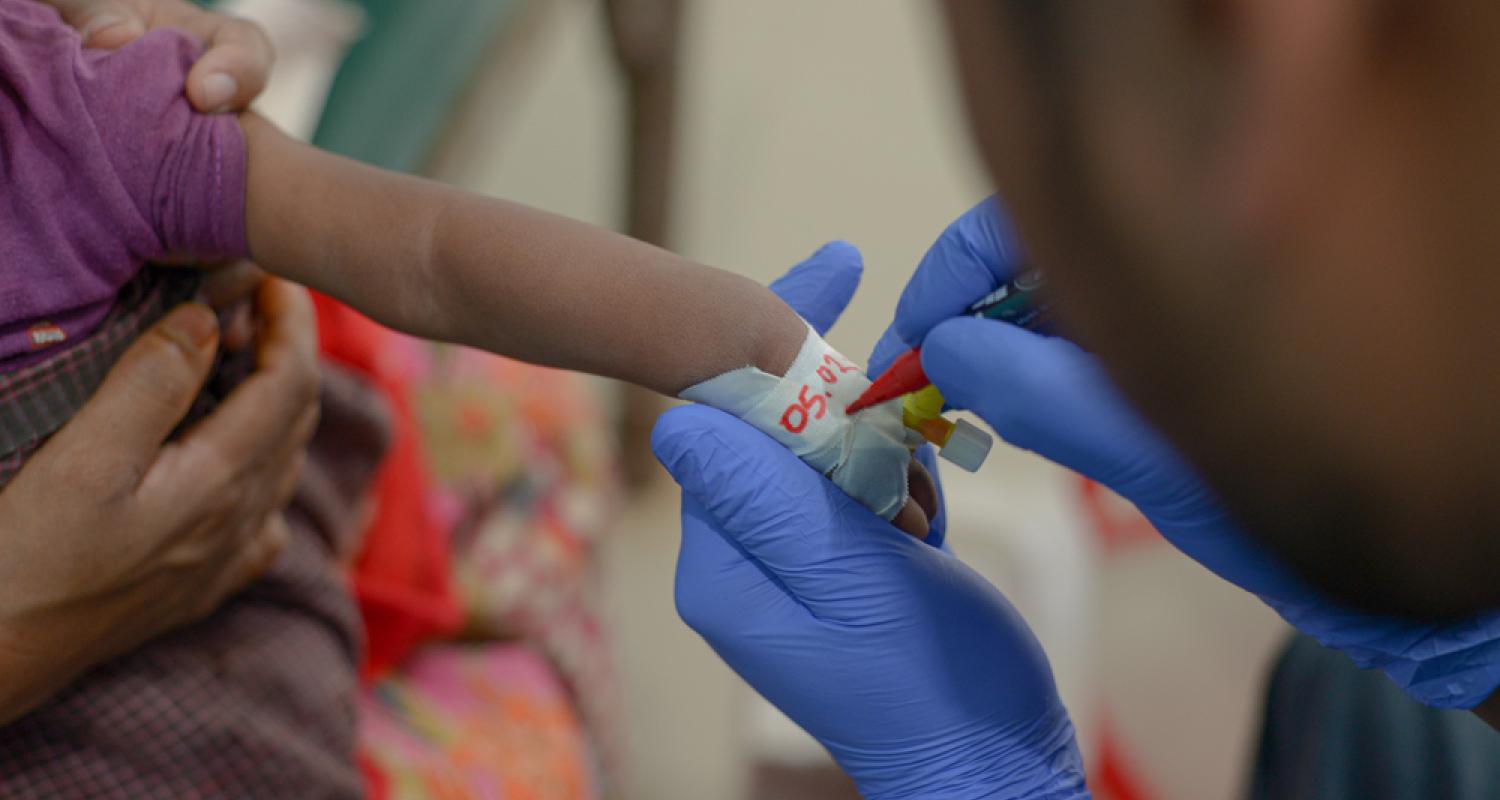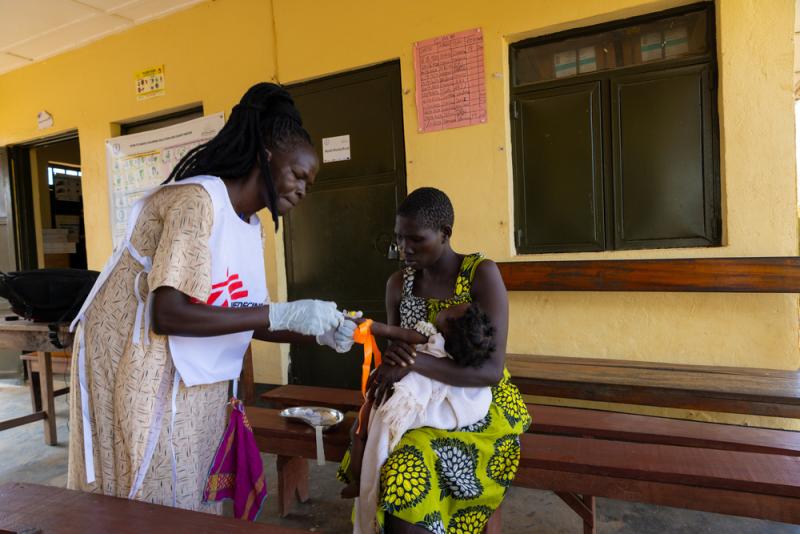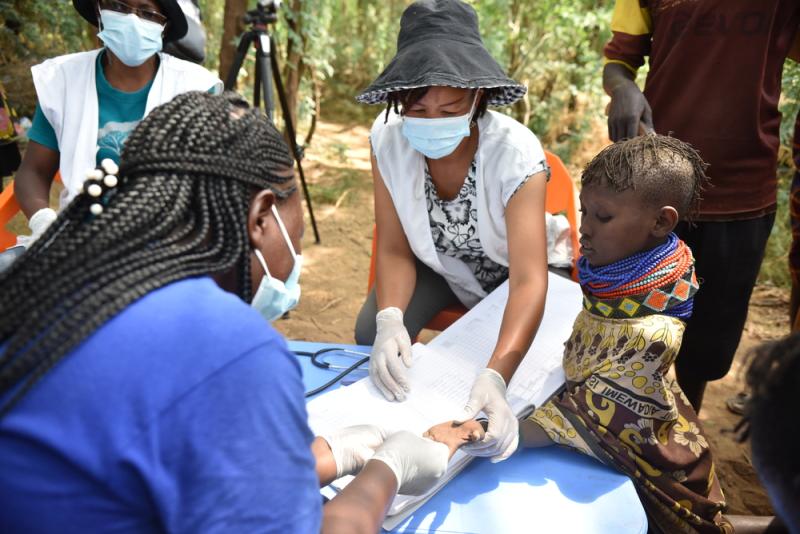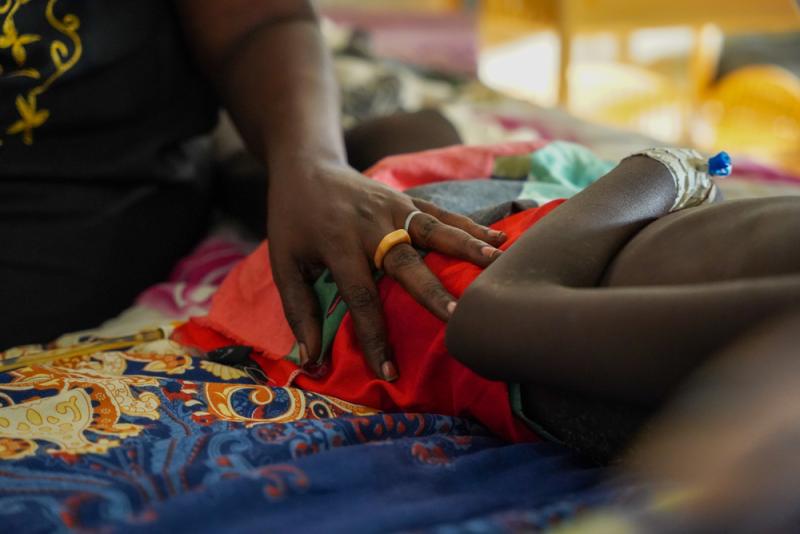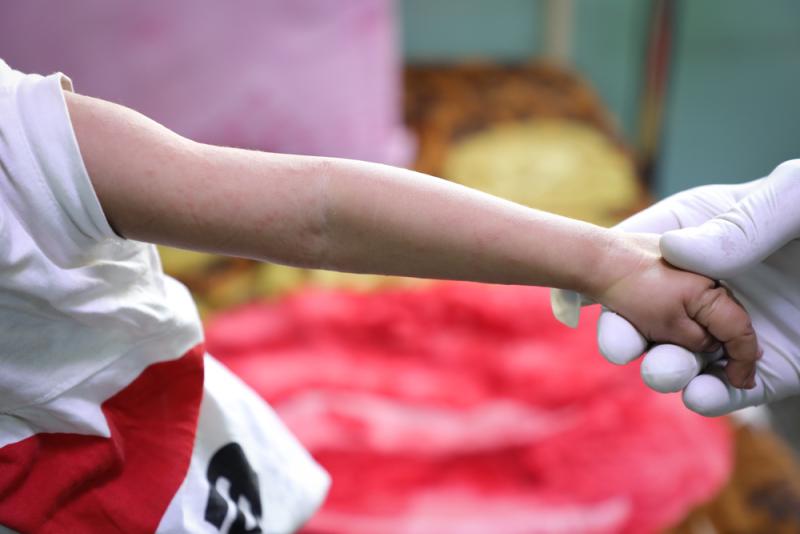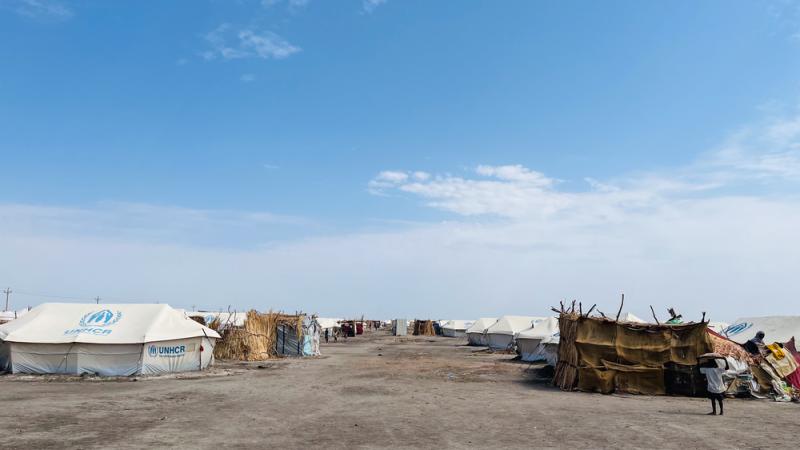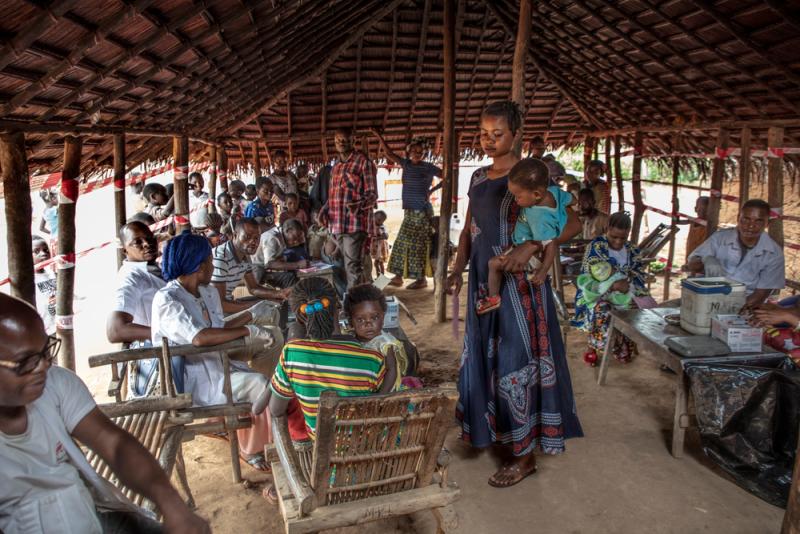Measles is deadly but easily preventable
Latest updates
South Sudan's Western Equatoria state is facing a measles crisis, with seven deaths and 460 cases recorded as of March 2024. The majority of these cases were among children under the age of five who had not been vaccinated against the disease. Doctors Without Borders is calling on health authorities and the World Health Organization (WHO) to launch an immediate vaccination campaign to prevent further spread of the disease.
What is measles?
Measles is a highly contagious acute viral infection. It is transmitted by the airborne route (inhalation of respiratory droplets spread by infected individuals). The disease mainly affects children under 5 years of age and can be prevented by immunization.
However, this deadly disease is easily preventable. A vaccine offers almost complete protection when a person is inoculated twice and, therefore, ensuring maximum double-vaccination coverage of children is vital. To avoid outbreaks, 95% of the children should be double-vaccinated; surveillance must be strong; and regular catch-up campaigns must be organised to protect children who fall through the cracks.
Quick facts about measles
Those most at-risk of contracting measles are under- or unimmunised people, especially children aged under five. Areas of conflict or high-density settings – such as refugee camps – with low immunisation rates and weak local health systems often see epidemics. The Democratic Republic of Congo, Central African Republic and other countries are prone to outbreaks because local health authorities often lack the resources to carry out routine vaccination.
In addition, the remote, difficult terrain in some parts of these countries makes the logistics of transporting materials needed for vaccination campaigns extremely challenging.
Measles is caused by a virus so contagious that 90 per cent of non-immune people living with an infected person will catch it; one sick person can infect up to 18 others. It is transmitted from the nose, mouth or throat of infected people through coughing, sneezing and breathing. Vaccination is the best protection against measles.
Measles symptoms appear between 10 and 14 days after exposure to the virus and include a runny nose, cough, eye infection, rash and high fever. In up to 20 per cent of cases, measles causes serious and potentially fatal complications, including severe diarrhoea, respiratory tract infections like pneumonia, blindness and encephalitis (inflammation of the brain).
There is no specific antiviral treatment for measles and people receive treatment for the symptoms, such as fever. Care involves isolating patients and treating them for complications. Most people recover within two to three weeks, but in low-resource settings, up to 15 per cent of people infected with measles die from one or more of these complications. Children, especially those under five and those who may have other immune-suppressing illnesses, such as severe malnutrition, make up most of those who die from the disease.
To declare an outbreak, laboratory confirmation of diagnosis is required. In overcrowded or closed settings, such as camps for refugees and displaced people, one confirmed case of measles is considered an outbreak because the disease spreads so quickly and easily. Doctors Without Borders responds during outbreaks by providing treatment to people with measles and by implementing large-scale vaccination campaigns.
Doctors Without Borders has vaccinated over 34 million children against measles since 2006.
Outbreaks are fuelled by weak public immunisation systems and low vaccination coverage, including in areas of conflict and among high numbers of people living in close quarters, such as refugee camps.
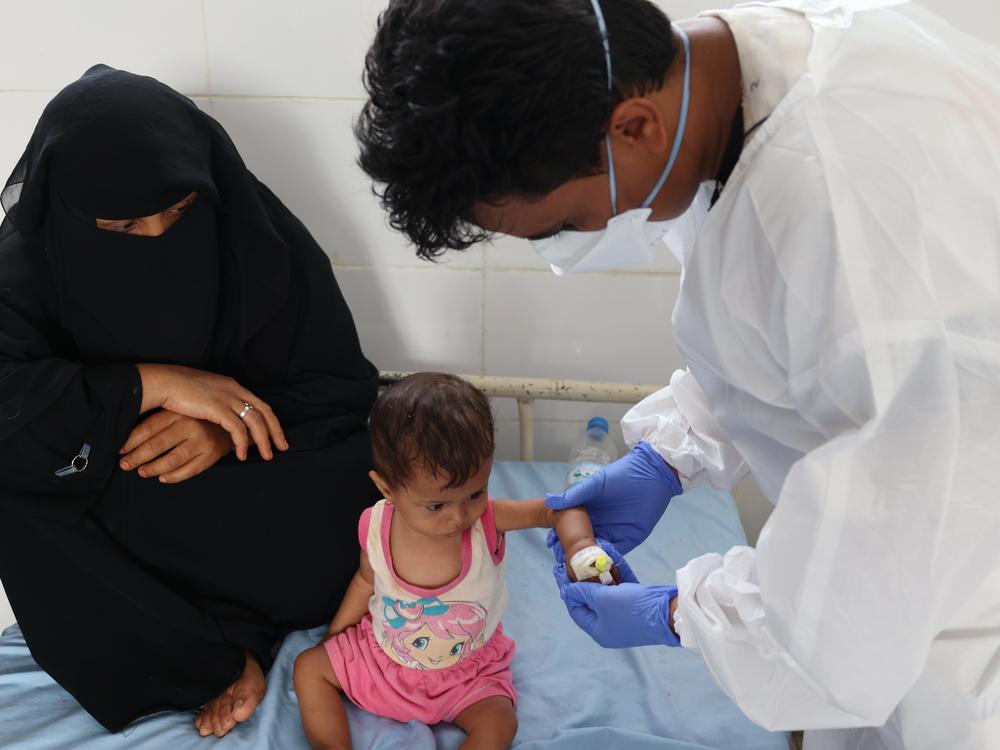
A child with measles receiving treatment at the isolation room of Abs, Yemen, General Hospital supported by Doctors Without Borders. In the first half of 2023, the number of measles patients received in Doctors Without Borders-supported facilities has nearly tripled at almost 4,000, compared to the full year in 2022. © MSF
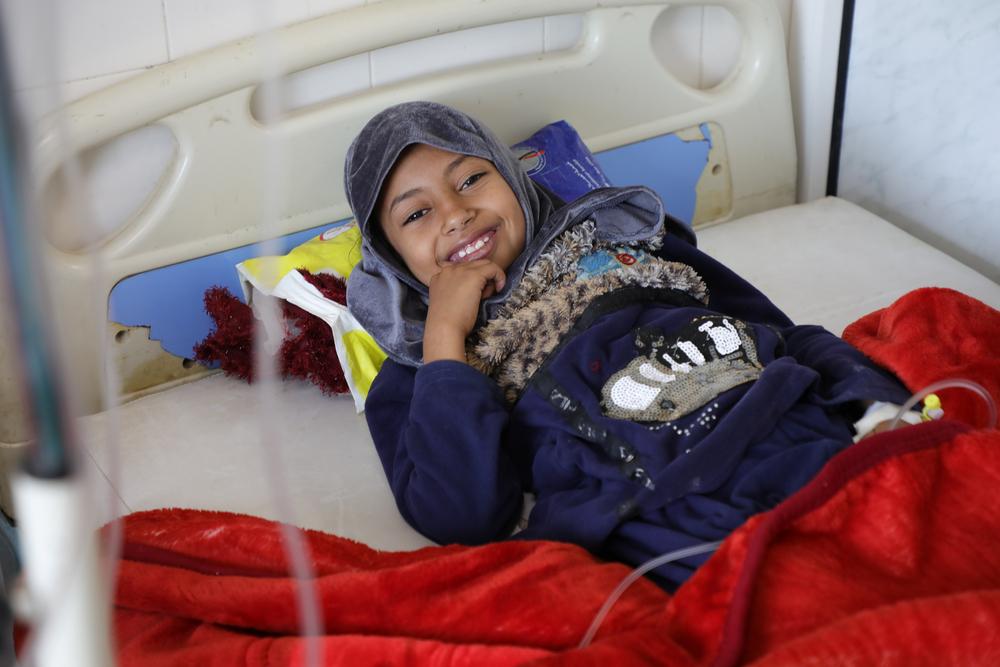
Ebtisam, 8 years old. She is receiving treatment in the isolation center for measles patients supported by Doctors Without Borders in Rada'a Hospital, Yemen. Ebtisam is about to recover and be discharged from the center. In response to the increased number of measles cases reported in the Al Bayda governorate in February 2023, the MSF Mobile Emergency Team (MET) started an intervention in Al Bayda to reduce mortality and morbidity related to the measles outbreak in the governorate. © Majd Aljunaid/MSF
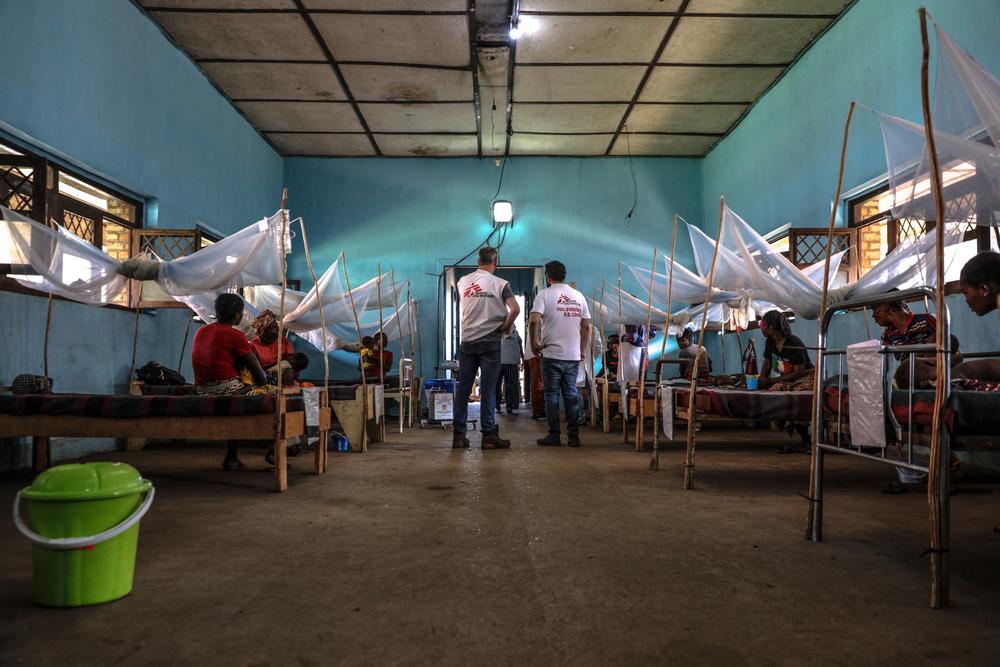
View of a ward for patients suffering from measles at the Bangabola General Hospital, where Doctors Without Borders emergency team has notably provided care for patients with measles complications, in Democratic Republic of Congo. © Pacom Bagula/MSF
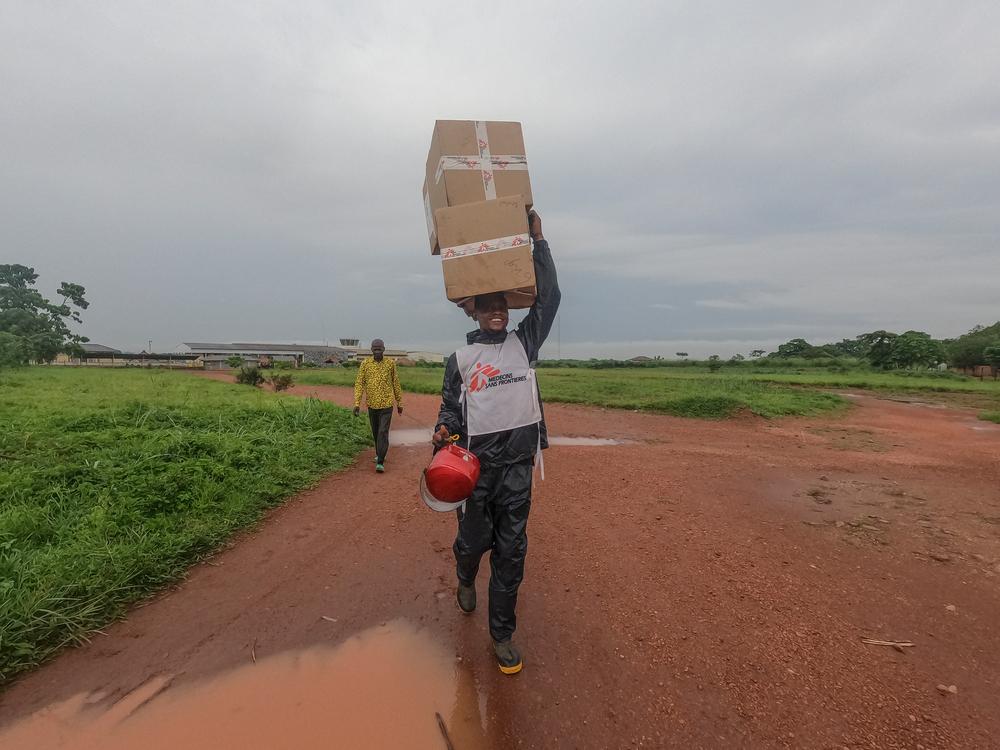
Miterand, the Doctors Without Borders motorcyclist, is unloading materials that just arrived by plane at Gemena airport for the measles vaccination campaign in Bangabola. He is part of the driving team that will dispatch teams, materials and vaccines during the campaign in Democratic Republic of Congo. © Pacom Bagula/MSF
